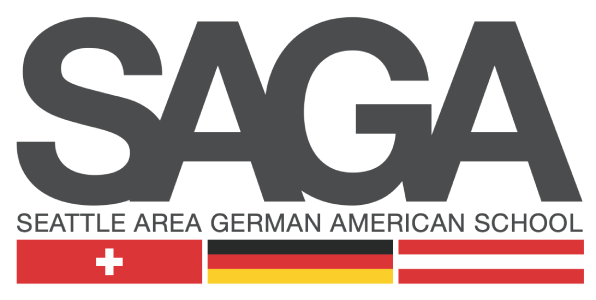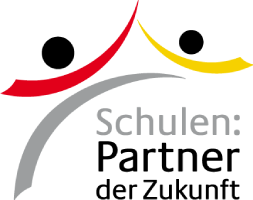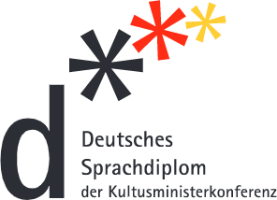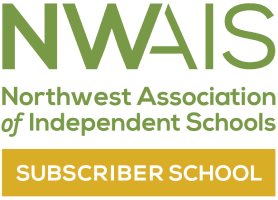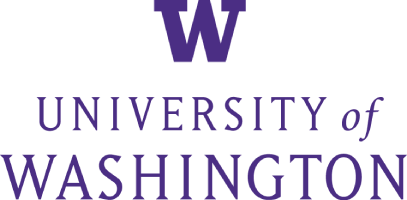At the SAGA School we believe children learn best through playing, exploring and engaging in hands-on activities while forming positive relationships with children and adults in the world around them.
Previous exposure to the German language is highly recommended for incoming Kindergarten students and required for students grade one or higher. However, since our students come from a wide variety of different language and cultural backgrounds, we provide individualized student support by forming collaborative relationships between the school, teachers and the families.
Curriculum
The Elementary School curricular goals are organized into Kompetenzbereiche (competency areas) as is common practice in Germany, while meeting, and often exceeding, Washington State Standards. Beginning with Math, German, Science, and Social Studies, students are challenged to develop their understanding of basic concepts and awaken a passion for learning that will accompany them throughout their developmental years.
Daily Schedule
Kindergarten meets Monday through Friday for a full day program from 9:00 a.m. until 3:00 p.m. In accordance with Washington State Public School policy, Kindergarten students must be 5 years old on or before August 31st of the year they enter Kindergarten. If you are interested in testing early into Kindergarten, please check your local public school system for information.
First through fifth grade meets Monday through Friday, 9:00 a.m. until 3:00 p.m. Due to the low student-teacher ratio, students benefit from individualized attention and a personalized curriculum. The multi-age classroom encourages a strong community where older children serve as models for their younger classmates. Younger children tend to develop independence more quickly because of the assistance of an older "buddy" in the group. While being exposed to models of positive social, emotional, physical and intellectual behavior, our younger students also benefit from the stimulation of a wider range of interests, personalities and abilities.
A typical school day includes a well balanced blend of academic studies and self-enrichment activities.
9:00
School Day Begins / Arrival / Greeting and Morning Circle
9:15
Core Subjects (Math, German, English starting at 1st Grade)
11:00
Lunch and Recess
12:00
Core Subjects (Math, English starting at 1st Grade)
1:00
Recess
1:30
Home room/ Check in
1:50
Projects / PE / Art / Music /Class Council
3:00
School Day Ends
Re-enrollment information will be emailed to you.
Aug 28
First Day of School
Nov 25 - 26
Fall Parent Teacher Conferences
Nov 27 - 29
Thanksgiving Break
Dec 23 - Jan 3
Winter Break
Feb 17 - 21
Mid-Winter Break
Apr 14 - 18
Spring Break
Jun 17
Last Day of School











"Im impressed by how well the German curriculum is integrated with the Washington state curriculum and standards. It was a pleasure to see how the students switch effortlessly between the languages, and their command of the German language is fantastic."
Monique Mussbach, Former SAGA Intern
We chose SAGA because of the balance between language immersion, a curriculum based approach and the obvious attention to detail. We have not yet been disappointed!
Stacey Wiggins, Current SAGA Elementary parent
...the school is so much more than "just a" German immersion school. SAGA feels like an extension of our family and is such a creative, healthy, loving, caring, fun and motivating place for my daughter.
Annette Veihelmann, SAGA Alumni parent
Es ist nicht nur die Schule, sondern das gesamte gesellschaftliche und soziale Umfeld, dass den Reiz von SAGA ausmacht.
Gregor Tatsios, SAGA Alumni parent
"Im impressed by how well the German curriculum is integrated with the Washington state curriculum and standards. It was a pleasure to see how the students switch effortlessly between the languages, and their command of the German language is fantastic."
Monique Mussbach, Former SAGA Intern
